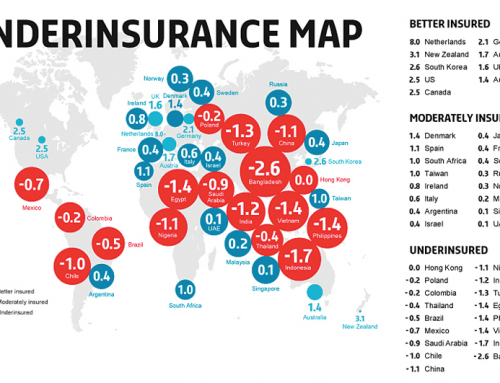The most recent (2017) survey of Declaration Linked Business Interruption insurance by the Chartered Institute of Loss Adjusters (CILA) highlighted the ongoing concerns of underinsurance in Business Interruption (BI) claims. The latest survey, the fourth in nine years, identified that 47.5% of BI policies were arranged on a declaration linked basis and that 44% of those BI policies were under-insured and that the under-insurance shortfall on average was 44%.
Three of the top ten underlying causes identified in the CILA report were –
- Misunderstanding the insurance definition of Gross Profit
- Misunderstanding the basis period to be declared
- Declarations not submitted or not requested
In an endeavour to assist clients BIBA has drawn together ‘Business Interruption (Declaration Linked Basis) – Insurance Gross Profit Declaration Form’, which you can contact De Novo Risk Solutions Ltd if you wish to use.
The form will help to address the three underlying causes highlighted above –
Misunderstanding the insurance definition of Gross Profit
This was found to be the most significant cause of underinsurance in the CILA survey.
An accountant’s definition of ‘Gross Profit’ is different to the insurance definition and this can lead to confusion when relying on an accountant to provide a figure for Gross Profit – either estimated or declared.
Some Insurers have adopted different terminology for Gross Profit to differentiate from the accountants’ definition – for example ‘Insurance Profit’, Insurable Profit’ or ‘Insured Profit’.
The Declaration Form refers to ‘Insurance Gross Profit’ and sets out a step-by-step guide how an accountant or auditor should calculate the declared figure from the last audited accounts.
It must be emphasised that insurers will have differing definitions of Gross Profit and it is important that the Declaration Form is amended to reflect the insurer’s definition – particularly in respect of Uninsured Working Expenses. Also, care needs to be taken if your client’s Gross Profit calculation does include Uninsured Working Expenses additional to the BI policy Gross Profit definition (which will be shown on the policy schedule). These will need to be taken into account when the form is completed.
Misunderstanding the basis period to be declared
The declaration form should be completed in accordance with the BI policy wording.
The CILA research identified that the basis periods are as follows –
- The last 12 months prior to the policy period beginning – 44% of insurer BI wordings
- The Gross Profit anticipated in the policy period – 25% of insurer BI wordings
- The Statutory Accounts from financial year most nearly concurrent with the expired insurance year – 14% of insurer BI wordings
- The last set of Statutory Accounts ending most recently prior to the commencement of the insurance policy period – 14% of insurer BI wordings
- Other – 3% of insurer BI wordings
It is also important to understand that if the insured’s indemnity period is in excess of 12 months, the declaration to be supplied is only annual figures from the financial accounts, as the policy wording will usually allow for a proportionate increase.
Declarations not requested
The declaration-linked BI policy wording will include a requirement for the insured to submit a declaration, supported by accountant’s figures, and usually the policy will require the declaration to be made within a set time limit.
For example –
Insurer A – Premium Adjustment Clause
You will supply, within six months of the expiry of each Period of Insurance, a professional accountant’s declaration of Insured Profit earned in Your last financial year most closely corresponding to the Period of Insurance.
Insurer B – Declarations Condition
Not later than 6 months after the expiry of each Period of Insurance, the Insured shall provide the Insurer with a declaration confirmed by the Insured’s auditors of the Gross Profit earned during the financial year most nearly concurrent with the expired Period of Insurance.
In practice, many insurers do not pursue Gross Profit declarations and clients may not be aware of their obligations under the policy. The benefit of declaration-linked BI cover to clients is that the sum insured is increased (typically by 133%) and the average clause is deleted.
With the Insurance Act 2015 creating new duties of disclosures on commercial clients it may be argued that failure to supply a declaration may result in a proportionate remedy being applied at the time of a claim, reducing a claim payment to the client.
It should be stressed that some insurers do provide their own declaration form, unique to their Gross Profit definition, and these should be used whenever possible. They may be supplied by the insurer with renewal documents or be available on the insurer broker extranet sites.
*Source: https://www.biba.org.uk/technical-updates/business-interruption-declarations/









